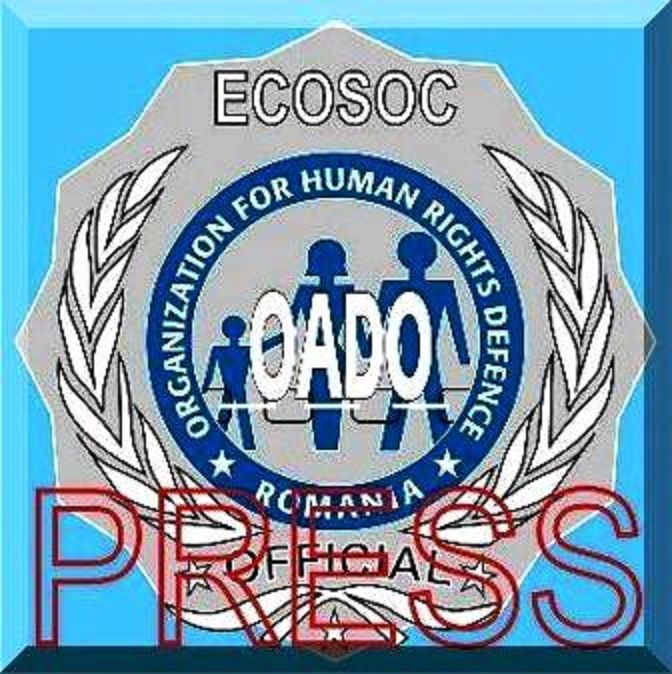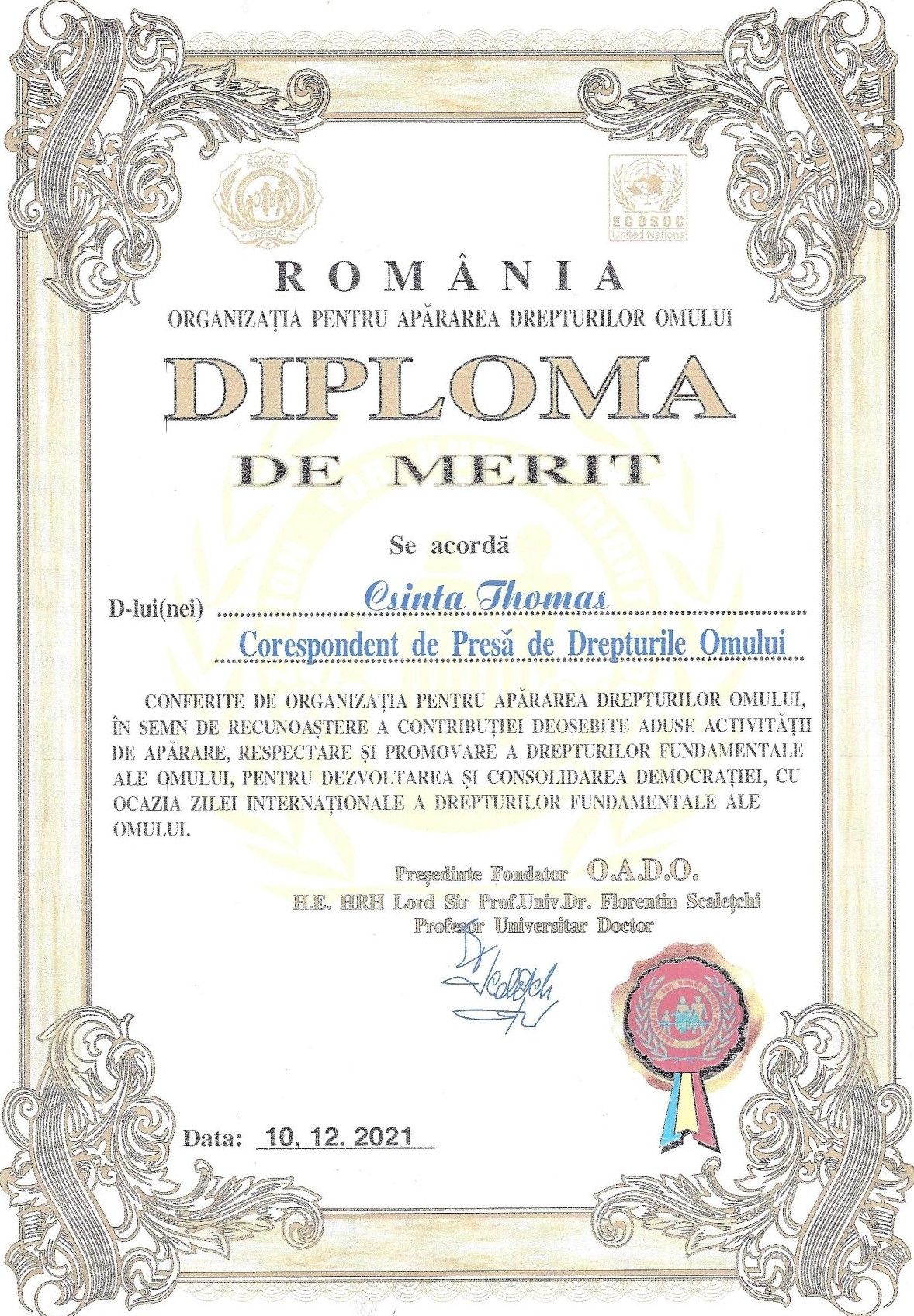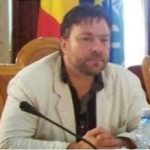

Thomas CSINTA, Profesor de matematici aplicate în științe inginerești și social–economice, Director de studii CUFR (Consultanță Universitară Franco – Română) de pe lângă Școlile Superioare Franceze de Înalte Studii (Les Grandes Ecoles), Cofondator IRSCA Gifted Education, Vicepreşedintele Consortiului EDUGATE (Consorțiul Român pentru Educația Copiilor și Tinerilor Supradotați și Talentați)
 Copiii supradotați au nevoie de un mediu specific în care să se simtă acceptați pentru ei înșiși, să relaționeze cu alți copii că ei, și să-și facă prieteni. Este ceea ce-și doresc cel mai mult!
Copiii supradotați au nevoie de un mediu specific în care să se simtă acceptați pentru ei înșiși, să relaționeze cu alți copii că ei, și să-și facă prieteni. Este ceea ce-și doresc cel mai mult!
Vino la Porți Deschise, un eveniment doar o dată pe an!
Copiii cu vârste între 8 și 14 ani, care au IQ superior la un test IQ parcurs (WISC IV/ SON-R/MPRSP) sunt invitați să participe la un Program al Porților Deschise de 2 zile, în luna aprilie 2022: 16 și 17 aprilie, sâmbătă și duminică, orele 14-16.30 (5 h).
Obiectivele Programului
1. interacțiune și relaționare cu alți copii cu IQ superior
2. cunoașterea mediului de lucru de la Centrul Gifted Education
3. dezvoltare cerebrală integrată prin conștientizarea, comunicarea și gestionarea emoțiilor în timpul jocurilor facilitate
Locurile sunt limitate
Numărul maxim de participanți este 10 și se ocupă în ordinea primului sosit.
Cum te înscrii?
Pentru a participa la Porți Deschise este necesar să completezi un formular (veți primi un răspuns în maxim 24 h). Doar după confirmarea testului în baza noastră de date sau după caz, după validarea testului de IQ, veți putea să achitați înscrierea. În acest caz veți primi toate detaliile pe email.
Alte detalii: click aici (Centrul Gifted Education)

Note. Gifted education (also known as Gifted and Talented Education (GATE), talented and gifted programs (TAG), or G/T education) is a broad group of special practices, procedures, and theories used in the education of children who have been identified as gifted or talented. The main approaches to gifted education are enrichment and acceleration. An enrichment program teaches additional, related material, but keeps the student progressing through the curriculum at the same rate as other students. For example, after the gifted students have completed the normal work in the curriculum, an enrichment program might provide them with additional information about a subject. An acceleration program advances the student through the standard curriculum faster than normal. This is done through many different approaches.

There is no standard global definition of what a gifted student is; multiple definitions exist. Most definitions select the students who are the most skilled or talented in a given area, e.g., the students with the most skill or talent in music, language, logical reasoning, or mathematics. The percentage of students selected varies, generally with 10% or fewer being selected for gifted education programs. However, since students vary in their aptitudes and achievements, a student who is not gifted in one area, such as music, may be considered gifted in another, such as language. Consequently, even if all programs agreed to include only the top 5% of students in their area, more than just 5% of students would be identified as gifted.
Definition of giftedness
Gifted children generally have exceptional achievement or potential in one or more of the following domains:
- a high level of measured intelligence;
- specific academic aptitude in a subject area;
- creative thinking;
- superior talent in visual and performing arts;
- natural leadership of peers; and
- psychomotor ability – outstanding performance or ingenuity in athletics, mechanical skills or other areas requiring gross or fine motor coordination;
The multi-dimensional aspect of intelligence has been promoted by Professor Howard Gardner from the Harvard Graduate School of Education in his theory of multiple intelligences. In his introduction to the tenth anniversary edition of his classic work Frames of Mind, he says: In the heyday of the psychometric and behaviorist eras, it was generally believed that intelligence was a single entity that was inherited; and that human beings – initially a blank slate-could be trained to learn anything, provided that it was presented in an appropriate way. Nowadays an increasing number of researchers believe precisely the opposite; that there exists a multitude of intelligences, quite independent of each other; that each intelligence has its own strengths and constraints; that the mind is far from unencumbered at birth; and that it is unexpectedly difficult to teach things that go against early ‘naive’ theories of that challenge the natural lines of force within an intelligence and its matching domains. (Gardner 1993)
Howard Gardner initially formulated a list of seven intelligences, but later added an eighth, that are intrinsic to the human mind: linguistic, logical/mathematical, visual/spatial, musical, bodily kinesthetic, intrapersonal, interpersonal, and naturalist intelligences. It has become widely accepted at both local and international scales to adopt a broad definition of giftedness using multiple criteria to formulate gifted education policy.
Articole asociate
Gifted education. Teoria educației. Misiunea noastră „Gifted Education” în România!
Nota redacției



Parteneriat Jurnalul Bucureştiului



















